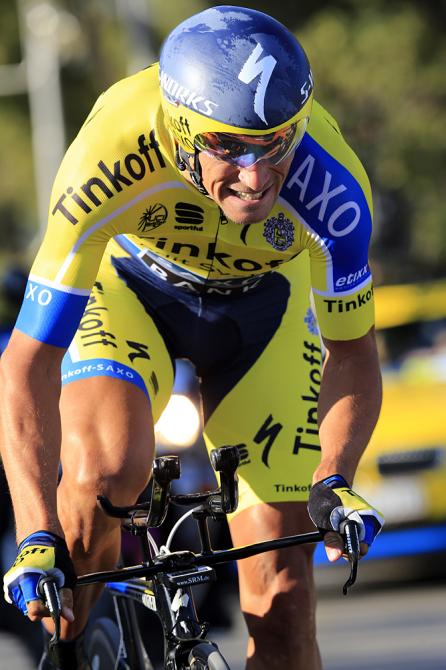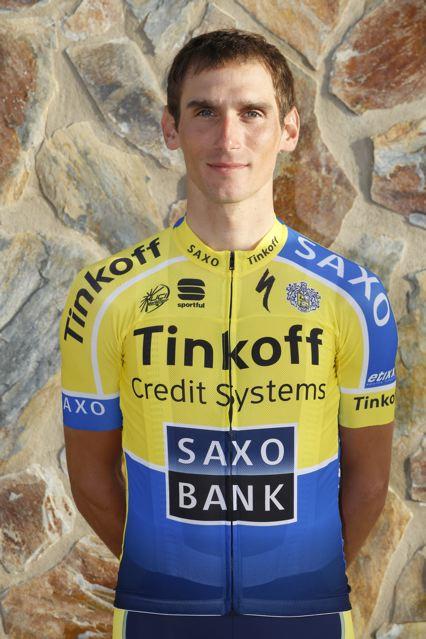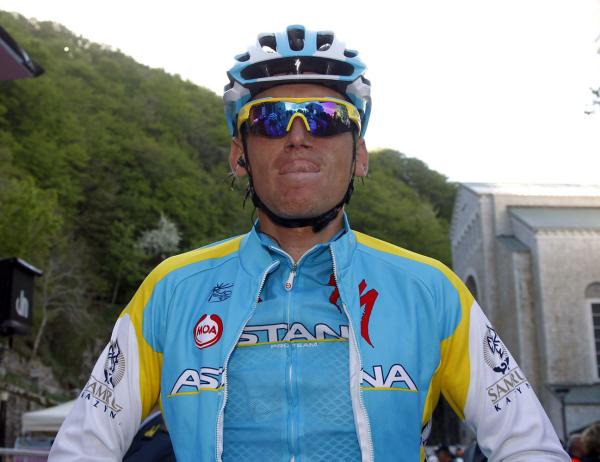Exclusive: Kreuziger speaks about his Biological Passport case
Tinkoff-Saxo rider insists he never blood doped, explains his relationship with Dr. Ferrari



Roman Kreuziger has reiterated his innocence and offered further explanation as to his blood values at the centre of a UCI Biological Passport case.
The Czech rider and his legal team are awaiting the final documentation from the UCI and WADA before a hearing is scheduled at the Court of Arbitration of Sport in Lausanne, Switzerland. Kreuziger was cleared of doping by the Czech Olympic Committee in October but if found guilty by CAS, he could be banned for up to four years.
Speaking exclusively to Cyclingnews at the Tinkoff-Saxo training camp in Gran Canaria, Kreuziger was willing to answer questions relating to his data stemming back to his time at Astana, the UCI’s procedures during his case, his relationship with former coach Michele Ferrari, and the possibility of receiving a four-year ban.
“WADA and the UCI have until around December 8 to file their appeal,” Kreuziger told Cyclingnews.
“That’s more time that we expected and I don’t like it because I’d like the fastest resolution possible. It’s not easy for me, and for the team because people think I’m suspended but right now I’m cleared by the Czech Olympic committee. I have been cleared since September and since then the UCI haven’t sent all their paperwork to CAS.”
“I don’t know what they’re waiting on because for them it’s apparently a clear case. It might take until the start of January before we know when the case will reach Lausanne.”
The Tinkoff-Saxo rider was provisionally suspended by the UCI in August of this year after anomalies were detected in his biological passport dating back to 2011 and 2012, when he raced for the Astana team. He moved to Tinkoff-Saxo at the start of 2013.
Get The Leadout Newsletter
The latest race content, interviews, features, reviews and expert buying guides, direct to your inbox!
Last week he decided to publish his passport data on his personal website. He published data from 2007 to 2013. The data shows that his haematocrit rose at certain points, when it would typically fall and that his reticulocytes remained constantly high during periods of racing. Kreuziger's defence relies on his claim that he used the substitute hormone L-Thyroxine as treatment for an under-active thyroid and this affected his blood values. L-Thyroxine is not on the WADA banned list and does not require a therapeutic use exemption.
When he released his Biological Passport data he stressed that he had never tested positive but quickly made a further statement, adding that he’d never doped. When asked categorically if he had ever taken performance enhancing drugs or infused his own blood, he told Cyclingnews: “No, I have never doped. I haven’t broken the rules but the system should be clearer because this isn’t just a risk for me but for all other clean athletes. This reminds me of a Kafka trial but my family and I still believe that common sense will prevail.”
“I’ve never taken performance enhancing drugs of any sort and the same goes for a blood transfusion. I know that’s there’s suspicion around me but I think that’s stupid to dope or to micro-dose with EPO. I’m the first to admit that it’s stupid because I’d prefer to finish second for 15 years than have a cloud hanging over me. Even if I’m banned, even if I’m beaten I know that my conscious is clear because I’ve not doped. I want to add that in 2014 I had one control in January for the passport and then my next one was in mid-November.”
Working with Dr. Ferrari
Kreuziger also stated that he did not visit or seek treatment from the controversial and banned Dr Michele Ferrari over his thyroid problem. The pair had worked together in 2007, but according to Kreuziger only training programmes were discussed. Ferrari was banned for life as part of the USADA doping investigation into Lance Armstrong and the US Postal Service team. He has always denied the numerous accusations of doping made against him.
“I know that people put me under suspicion because I’ve also been to Michele Ferrari,” Kreuziger told Cyclingnews.
“And yes, I went. I was young and some people told me to go to him for training because he was the best. When you’re 20, if people say that to you, then you will go. Now looking back it’s wrong because look at the situation I’m in but he was one of the first to tell me that cycling had changed and that there had been a new generation and that doping was not needed. He told me it was just about training. When I went to him, I wasn’t thinking about what he’d done or not done in the past it was more the case of being excited because I thought he could help me. He didn’t take every rider so I was excited to go. And in the year I worked with him it was just about training. It was for a year and it ended in 2007. The team said in 2008 I couldn’t work with him, they said that to everyone, so it stopped. And he never helped me with the thyroid problem.”
“I don’t know if people in the public are judging this case on the back of my relationship with Ferrari. I’ve put everything online and that reaction can go either way. Some will like it, some wont. Some experts will agree, some won't. And with the thyroid, I’m using orthodox science to back me up. I have two sisters and they both have it too and if you do a lot of sport then it’s going to get worse.”
Elevated blood values
When asked to explain the elevated blood levels in his Biological Passport, described by UCI president Brian Cookson as “having very serious anomalies” Kreuziger argued that several riders have demonstrated a rise in haematocrit during three –week races and not been sanctioned or placed under investigation.
“Each body is different. And riders go to altitude and if you organise that well you can see your levels rise up during a race. That’s not just me. Look at some other rider profiles because they also went up, sometimes more. So I don’t get why they’re okay to race and I’m not. I understand my profile looks strange but I’ve kept within parameters from the profile data I’ve now seen.”
The outcome of Kreuziger’s case is far from being decided. It’s likely that the case will stretch well into January of 2015 and should he be found guilty of a doping violation he could face anything between a two and four year ban.
“I don’t think I can get a four year ban. I think that’s bullshit because I’ve not had a ban before and I’ve not organised doping. I think I could get two years but that depends when it starts. There are many options.”
Daniel Benson was the Editor in Chief at Cyclingnews.com between 2008 and 2022. Based in the UK, he joined the Cyclingnews team in 2008 as the site's first UK-based Managing Editor. In that time, he reported on over a dozen editions of the Tour de France, several World Championships, the Tour Down Under, Spring Classics, and the London 2012 Olympic Games. With the help of the excellent editorial team, he ran the coverage on Cyclingnews and has interviewed leading figures in the sport including UCI Presidents and Tour de France winners.
